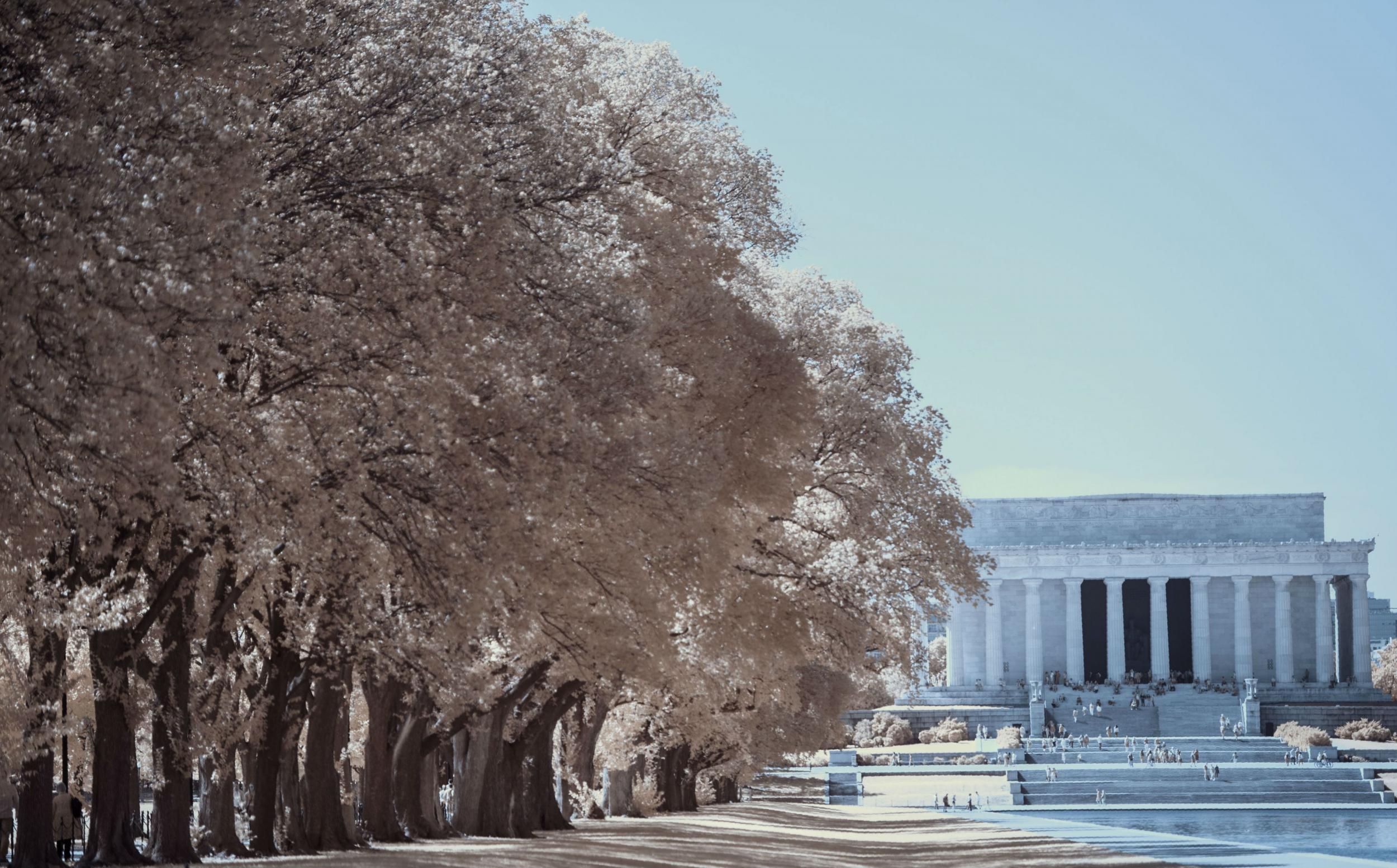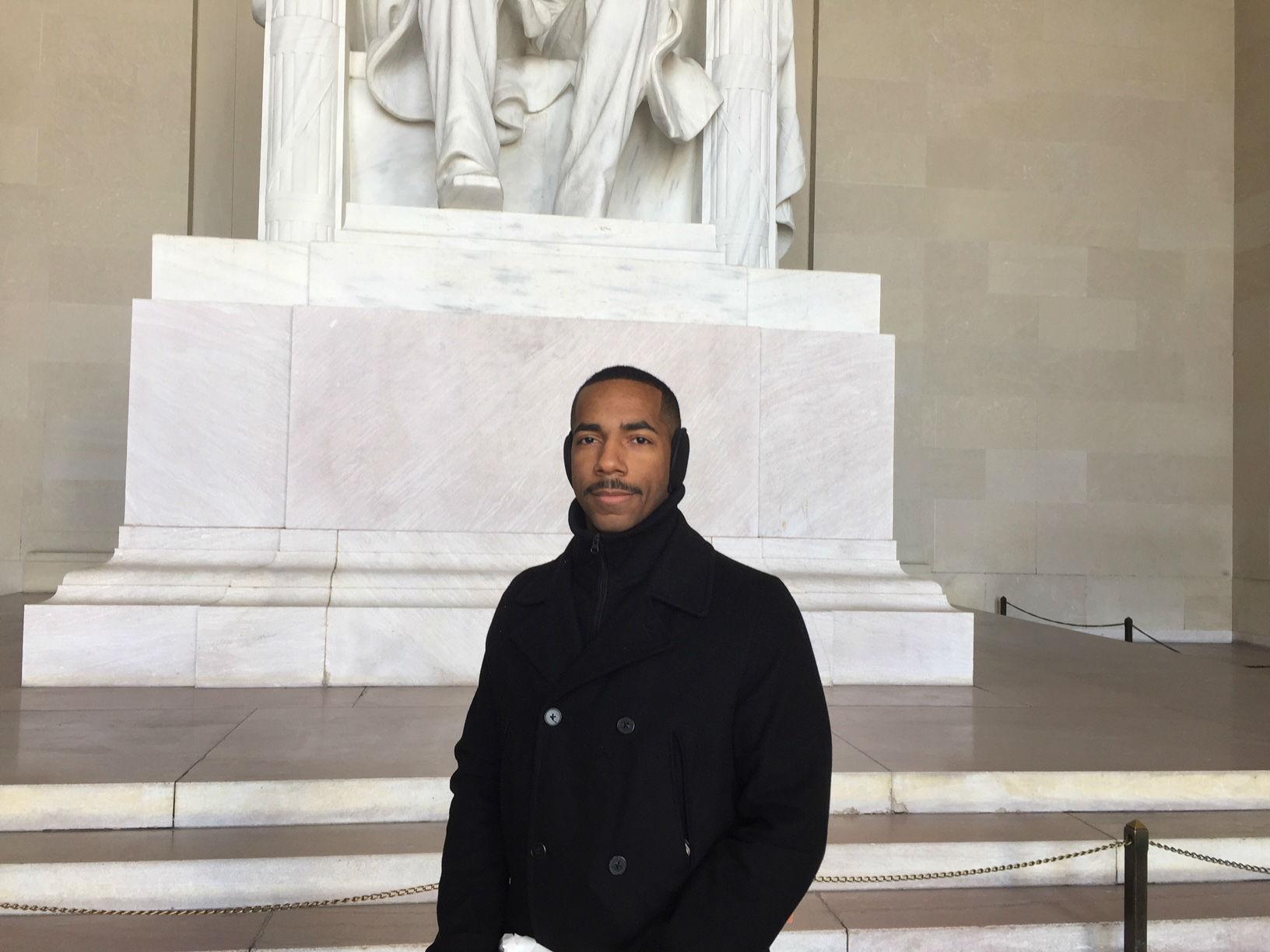Is Donald Trump really America’s worst President? Walking through Washington’s monuments reveals the answer
The President appears to have little affection for the nation’s capital
It has been years since Andrew Walls, a sales associate from Philadelphia, toured the sights of the nation’s capital. So, figuring the cold weather would keep away the crowds, he caught a train from his city’s 30th Street Station, ordered an Uber, drove to the Lincoln Memorial and is now staring at the jutting jaw of the the 16th president and considering the seemingly unthinkable – could Donald Trump, the 45th and current Commander-in-Chief, ever get his own statue?
“I think Trump has had a phenomenal first year, especially given that he had no political experience,” says the 31-year-old. “He’s done tax reform, he’s worked on immigration reform. He has contributed to what should be a Republican victory.”
It has been 12 months since since Mr Trump was sworn in on the steps of the Capitol Building, at the opposite end of the National Mall, and delivered a now well-known America First speech. While the President is finishing that year with an historically low approval rating, Mr Walls scores it eight out of 10.

Yet he doubts the former reality television star will ever be memorialised in marble. “It seems that every step of the way, people are against him,” he says. “And some don’t like his stance on immigration.”
Critics of the President say the speech he delivered on Inauguration Day, written by nationalists Steve Bannon and Stephen Miller, revealed how unqualified and unsuited – both temperamentally and psychologically – he was for the position.
Yet his supporters said he alone was prepared to take on establishment Washington and upset members of both parties if he believed it was in the interests of the American people.
At the conclusion of the first year, both critics and supporters claim Donald Trump has proven them right. Opponents say his bigoted rhetoric has lowered the country’s international standing, incited anxiety at home and encouraged white supremacists. They claim he has insulted the very office of the presidency by his behaviour, and by his insistence on keeping his business interests and having family members in the White House. They say his tweeting is childlike.
By contrast, his supporters say he is putting the country back on the right course. They point to the passage of the tax bill, the Muslim travel ban, the seating of Justice Neil Gorsuch and the immigration crackdown as having delivered what he promised to this voters.
How can one try to make sense of all this?
Washington is littered with reminders of presidents gone by. There is the Washington Monument, an obelisk on the National Mall completed in 1888 to honour the first president, and there is the Thomas Jefferson Memorial, a Greek-styled parthenon established in memory of the third US leader. The Franklin Delano Roosevelt Memorial is set along the Potomac. There is the Kennedy Centre, the John F Kennedy Eternal Flame, and the Ronald Reagan Washington National Airport.
There are monuments for Robert Taft, James Buchanan and Ulysses S Grant. There’s a statue for Andrew Jackson at the Battle of New Orleans, and a plan to build a memorial for Dwight Eisenhower.
Close to the Lincoln Memorial is another fixture for visitors to Washington – the Vietnam Memorial. A gently curving wall of granite, sunk into the ground, it lists the names of the some 58,200 Americans killed in the conflict.
Rita Striker is taking in the monument, having travelled to the capital by bus from Indianapolis, Indiana, with her local church group to take part in an anti-abortion rights march. “He’s really helped the economy, and working to keep jobs,” she says of Donald Trump. “There are companies that are bringing back jobs from overseas.”
She says others have pointed to the bonuses and pay increases companies such as Apple have said they will make to employees in the light of the Republican tax bill.
Mr Trump secured five draft deferments for the Vietnam conflict and infamously mocked one of America’s most celebrated prisoners of war, Senator John McCain, for having been captured.
Yet a military veteran, who asks not to be named, manning a booth claims the President is “doing terrific”. He says Mr Trump has made it easier for veterans to get compensation, and suggests that by allowing military commanders on the ground more control over the rules of engagement, he has reduced US casualties.
It is just a short walk from the Vietnam Memorial to the White House. If you wish, you can take a short diversion past the Korean War Veterans Memorial, the 19 stainless steel statues of US soldiers looking ghostlike in the winter sun. Samuel and Lorraine Clarke, visitors from Northern Ireland, are looking, stunned, at an inscription of the casualty figures – 54,246 US troops killed, 628,833 United Nations troops and more than 750,000 from North Korea and China. Mr Clarke is concerned that Mr Trump’s rhetoric and name-calling in regard to North Korean leader Kim Jong-un could bring about another conflict.
“With power goes responsibility,” says Mr Clarke.
Rhianna Lopez, 22, and her friend are visiting from Phoenix, Arizona, and have been looking at the White House from the vantage point of a path next to the The Ellipse. She voted for Donald Trump and has found it difficult to endure his first year. If she had to sum up his performance during those 12 months, it would be “embarrassing”.
Some experts believe Mr Trump may be among the very worst president to have occupied his office.
“Donald Trump’s utter lack of respect or knowledge of the office has been appalling. He has not grown into the office nor has he even attempted to grow into the office,” says Professor Christina Greer, a political scientist at New York’s Fordham University
“The office of the presidency doesn’t change you, it exposes who you are. The presidency has shown Donald J Trump to be the man I feared – someone who is most comfortable lying, cheating, stealing and dividing.”
Indeed, many who make up the Washington establishment – commentators, government employees, retired diplomats – appear more upset by Mr Trump’s rudeness and arrogance than his actual actions. “I’m troubled and concerned at the end of his first year,” says a woman parked in a street across from the White House, who asks only to be identified as Madeline.
Yet lots of Donald Trump critics have short memories. At this stage in his first term, George W Bush had – following the attacks of 9/11 – ordered the invasion of Afghanistan and would within six months decide that Saddam Hussein had to be removed, even if the Iraqi regime had no links to the attacks, and evidence suggesting it possessed weapons of mass destruction had to be fabricated to persuade the world of the righteousness of the cause.

Thousands of American and British troops were killed, and maybe more than one million Iraqi civilians lost their lives as a result of violence, disease and chaos. A seemingly remorseful President Bush now spends his days painting and working to help injured veterans.
Set against such human waste, Donald Trump is not even the worst president of the last 10 years.
The name most commentators cite when talking about Mr Trump is Richard Nixon, the 37th president who resigned in August 1974 as the threat of impeachment loomed. Nixon was responsible for many things – for a dirty tricks campaign against his political opponents and for secretly using the agencies of government to attack them. There is no memorial for him in the capital, but tourists often visit the Watergate building where five men were arrested breaking into the offices of the Democratic Party headquarters in June 1972, an actual physical break-in rather than a hack of the party’s emails by Kremlin-linked hackers during the 2016 presidential campaign.
While critics frequently speak of concerns about Mr Trump’s impetuousness, a 2000 book, The Arrogance of Power: The Secret World of Richard Nixon, by Anthony Summers, reveals that Nixon was often so drunk and angry his aides feared he would trigger a nuclear war.
One occasion came in 1969 after a US spy plane was downed by North Korea over the Sea of Japan, killing 31 Americans. The book reports George Carver, the CIA’s top Vietnam specialist at the time, saying: “Nixon became incensed and ordered a tactical nuclear strike…The Joint Chiefs were alerted and asked to recommend targets, but [Henry] Kissinger got on the phone to them. They agreed not to do anything until Nixon sobered up in the morning.”
Mr Trump may tweet in the middle of the night. He may insult former beauty queens. He may boast to the North Korean leader about the size of his red button. It may be that Robert Mueller’s federal probe into possible collusion reveals something genuinely nefarious and illegal about his relationship with Russia. But so far, Mr Trump is not anywhere close to Nixon.
One of the reasons many in Washington appear to dislike Mr Trump is that he has made little effort to court them or appear interested in their world. Insiders remember a Sunday morning in February 2017 at the breakfast room of the Four Seasons hotel, the Georgetown hang-out for people who want to be seen. Ivanka Trump was introduced to diners by Dina Powell, the former Bush administration official who left Goldman Sachs to join the Trump White House. (She has since left.)
It was, according to those present, one of the moments when Washington’s Beltway establishment wondered whether the moderate Ms Trump might be a bridge to her father’s administration.
It was not to be. For all his impact on the conversations and anxieties of Washington, Mr Trump interacts little with its people or the business of politics. He has upset and insulted the Republican leadership, he mocks the Democrats. He even claimed – in a comment his officials later denied – that the White House was a “real dump”.
The brash New Yorker seems to have zero affection for the city. He does not drop by Ben’s Chili Bowl on U Street for a chili dog, as some of his predecessors have done, he does not reserve a table at The Bombay Club – long a haunt of power-dining, Indian food and presidents.
As soon as is humanly possible, Mr Trump leaves the city for one of his golf clubs in New Jersey or Virginia, or his Mar-a-Lago club in Florida. When he leaves office, it is impossible to think he might stay on in the city, as Barack and Michelle Obama have done.
Asked if she believed Mr Trump was enjoying his first term, Jeanne Zaino of the Department of Political Science and International Studies at New York’s Iona College, says she had stopped trying to get inside the President’s mind.
“At times he has said he is not, and misses his former life. At times he has seemed energised and pumped, for lack of a better term,” she explains.
“I think it is better to take what he says and does seriously – look at what and not why.”
Join our commenting forum
Join thought-provoking conversations, follow other Independent readers and see their replies
Comments